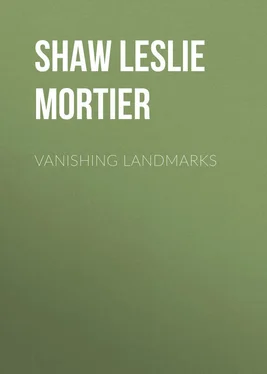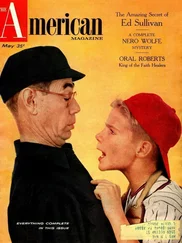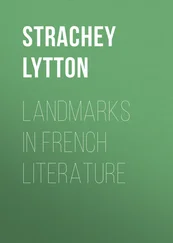Leslie Shaw - Vanishing Landmarks
Здесь есть возможность читать онлайн «Leslie Shaw - Vanishing Landmarks» — ознакомительный отрывок электронной книги совершенно бесплатно, а после прочтения отрывка купить полную версию. В некоторых случаях можно слушать аудио, скачать через торрент в формате fb2 и присутствует краткое содержание. Жанр: История, foreign_antique, foreign_prose, на английском языке. Описание произведения, (предисловие) а так же отзывы посетителей доступны на портале библиотеки ЛибКат.
- Название:Vanishing Landmarks
- Автор:
- Жанр:
- Год:неизвестен
- ISBN:нет данных
- Рейтинг книги:4 / 5. Голосов: 1
-
Избранное:Добавить в избранное
- Отзывы:
-
Ваша оценка:
- 80
- 1
- 2
- 3
- 4
- 5
Vanishing Landmarks: краткое содержание, описание и аннотация
Предлагаем к чтению аннотацию, описание, краткое содержание или предисловие (зависит от того, что написал сам автор книги «Vanishing Landmarks»). Если вы не нашли необходимую информацию о книге — напишите в комментариях, мы постараемся отыскать её.
Vanishing Landmarks — читать онлайн ознакомительный отрывок
Ниже представлен текст книги, разбитый по страницам. Система сохранения места последней прочитанной страницы, позволяет с удобством читать онлайн бесплатно книгу «Vanishing Landmarks», без необходимости каждый раз заново искать на чём Вы остановились. Поставьте закладку, и сможете в любой момент перейти на страницу, на которой закончили чтение.
Интервал:
Закладка:
TREASON AS AN ILLUSTRATION
Treason is the only crime defined in the Constitution. Prior to the year 1352 there was great uncertainty in England as to what constituted treason, and Parliament, for the purpose of restraining the power of the Crown to oppress the subject by arbitrary construction, passed, in that year, what is commonly known as the “Statute of Treason.” All acts that might be construed treasonable were classified under seven branches. The framers of the Constitution, desiring to protect the minority, chose only one of the seven and placed a perpetual bar against any other act being made treason, and further safeguarded the minority by defining the only basis of conviction. Section 3, Article III, is as follows:
“Treason against the United States shall consist only in levying war against them, or in adhering to their enemies, giving them aid and comfort. No person shall be convicted of treason unless on the testimony of two witnesses to the same overt act, or on confession in open court.”
Now, suppose confiscationists, whether styling themselves socialists, bolsheviki, single-taxers, or non-partisan leaguers, shall get control and, by referendum, extend the scope of treason to include such offenses as claiming title to real estate, which all the breed insist rightfully belongs to the people en masse . Far less degrees of what they consider “crime” were made punishable by death when democracy went mad in France. Of what use would the express provisions of the Constitution be if the power to recall decisions, as well as the judges who render them, is to be exercised by the mass?
Leave it to the people to afford protection from the people and you might just as well abolish all constitutional guarantees. Were the people en masse to make the laws, en masse to interpret the laws, and en masse to enforce the laws, the individual would have no rights that the people en masse would be bound to respect.
SOVIET RUSSIA AND AMERICAN REVOLUTION
In a widely circulated pamphlet, “A Voice Out of Russia,” the author speaks of “a certain divine sense in which the Russian revolution parallels the revolt of the thirteen American colonies, and in which the proletariat of Russia is striving to accomplish for his world much the same ideals which our forefathers laid down for theirs. There was,” he says, “more of the spirit of the people, more of faith and dependence in the proletariat, in American revolutionary doctrines, than we seem disposed to admit today; and by the same token, it is because we have lost our sense of fundamental democracy that we do not care to admit it.”
“Fundamental democracy” is the correct term. But we have not lost it. We are simply in danger of getting it. It is exactly what the Fathers sought to eliminate and prevent.
On the next page of the pamphlet, the author says: “The writers of the American Constitution certainly strove to do away with the artificial complexities of politics, and to bring every function of government within the grasp and comprehension of the whole electorate.”
I submit that that is exactly what the framers of the Constitution did not seek to do. They created representative government and sought to guard against direct government. The author quoted, and every other teacher of revolution, either by peaceful or violent means, is seeking to establish direct government. When they use the word “democracy,” they use it in its dictionary sense. They use it as Rousseau, Robespierre, Lenine, Trotsky and a very large number of others, including some widely known Americans, use it. Why do liberty-loving Americans seek to divorce the word “democracy” from its original meaning and popularize the greatest enemy liberty has ever known?
PLATO’S DREAM
One of the best and most conservative newspapers in the United States printed late in 1918 a carefully written editorial under the above title, from which I quote a few disconnected sentences, italicizing the most important:
“Twenty-five hundred years ago in Athens, Plato, the philosopher, who is called the ‘father of idealists,’ framed the structure of an ideal government among men, in the form of a republic. … When the dust of Plato was gathered into a Grecian urn, his dream did not die. The generations harbored and treasured it. Time after time, and in place after place, republics were formed. Men gave their blood and their lives to realize the dream of Plato. But always might prevailed over them. Only America endured to make the dream come true. In these times there are numerous republics but there is not one among them that does not owe its existence to the example and the influence of the United States. Were our republic to crumble, every other on earth would crumble with it… Since the adoption of the Constitution in 1789, one hundred and thirty years have passed and during that time America has met and overcome every trial to which the ideal republic could possibly be subjected . It has answered every argument against a republican form of government advanced by the most stubborn objectors.”
The foregoing is historically correct except the last two sentences. America has stood every test except that which ruined every other republic. It has not yet encountered direct government , towards which we seem radically tending. It has not withstood what Lord Macauley, a century ago, predicted would prove our overthrow. He declared the republic was “all sail and no ballast.” He predicted great speed for a period; but he warned against the day when those who did not have breakfast and did not expect dinner would elect our congress and our president. The demagogue would be abroad in the land and he would say: “Why do these have and you suffer?”
“Your republic will be pillaged and ravaged in the 20th century, just as the Roman Empire was by the barbarians of the fifth century, with this difference, that the devastators of the Roman Empire, the Huns and Vandals, came from abroad, while your barbarians will be the people of your own country, and the product of your own institutions.”
If “Coxie’s army” had been led by Eugene Debs, or any one of more than a score whose names are revered by many, instead of by a patriotic American, every mile of the road over which it traveled would have reeked with human gore. Had it resorted to bloodshed at that time, however, it would not have proceeded far. But socialism has made great progress since 1895.
Speaking before a Senate committee early in January of this year, the president of the American Federation of Labor is reported to have said: “The people will not countenance industrial stagnation after the war. There can be no repetition in the United States of the conditions that prevailed from 1893 to 1896 when men and women were hungry for the want of employment.”
The same veiled threat has been uttered repeatedly by men high in official position.
Are we face to face with a condition and not a theory? Will laborers revolt if they fail to secure employment, or when compelled to accept a lesser wage? Will farmers turn anarchist if they can find no market for their crops, or when compelled to accept a lesser price? Will bankers become bomb throwers if unloanable funds accumulate? No, America has not withstood every trial to which she can possibly be subjected. The supreme menace stands today with gnashing teeth, glaring into our faces.
CHAPTER VIII
WHAT IS A CONSTITUTION?
The nature of the constitution and the dependence of the minority thereon and hence the necessity for an independent judiciary discussed and illustrated.
A constitution is little less than a firm and binding contract between the majority and the minority, entered into for the sole protection of the minority, with regularly constituted courts to enforce its provisions.
Читать дальшеИнтервал:
Закладка:
Похожие книги на «Vanishing Landmarks»
Представляем Вашему вниманию похожие книги на «Vanishing Landmarks» списком для выбора. Мы отобрали схожую по названию и смыслу литературу в надежде предоставить читателям больше вариантов отыскать новые, интересные, ещё непрочитанные произведения.
Обсуждение, отзывы о книге «Vanishing Landmarks» и просто собственные мнения читателей. Оставьте ваши комментарии, напишите, что Вы думаете о произведении, его смысле или главных героях. Укажите что конкретно понравилось, а что нет, и почему Вы так считаете.












